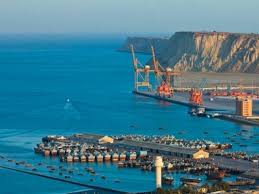Islamabad: Zhao Lijian, Deputy Chief of Mission at the Chinese Embassy in Islamabad Zhao Lijian Tuesday said China Pakistan Economic Corridor (CPEC) was one of the best performing projects of his country’s Belt and Road Initiative. He was speaking at a conference on `Belt and Road Initiative and CPEC’ organized by Strategic Vision Institute (SVI), an Islamabad based think tank, on the occasion of the inauguration of its (SVI’s) China Studies Center.
Lijian said CPEC was the “fastest and most effective” among the projects being undertaken as part of BRI. CPEC’s 19 early harvest projects worth $18.5 billion, he said, were making smooth progress towards completion. The multi-billion dollar CPEC project, which is being jointly undertaken by Pakistan and China, prioritizes development of Gwadar, energy projects, transport infrastructure and industrial cooperation.
Lijian reserved a special mention about the progress on energy projects. He said the second 660MW unit of Sahiwal Coal-fired Power Plant has completed its test run and is ready for inauguration. The first unit of the Sahiwal plant was inaugurated by Prime Minister Nawaz Sharif on May 24th. With the commission of second unit, the whole plant would be giving an output of 1320 MW. The Chinese diplomat said Port Qasim Coal-fired Power Plant is also expected to be completed this year, while three wind farms in Sindh were also nearing completion.
Meanwhile, Mr. Lijian said, the bidding process for Eastbay Expressway, which would link Gwadar Port with the main national highway network, was in the final stages and its groundbreaking ceremony would be performed this year. Work on Gwadar International Airport is also expected to begin this year. It should be recalled that the Grant Agreement on Gwadar Airport and Framework Accord on Eastbay Expressway were signed during PM Nawaz Sharif’s visit to China last month for attending the Belt and Road Forum.
Secretary Ministry for Planning, Development and Reforms Shoaib Ahmad Siddiqui said, “CPEC epitomizes the growing mutuality of interest and vision of shared politico-economic future of Pakistan and China.” He said, “effective and prompt” implementation of the projects was critical for the overall BRI timeline.
CPEC’s Project Director Hassan Daud Butt said CPEC would speed up industrialization and urbanization of Pakistan so that it could grow into an inclusive and prosperous country. He emphasized on mobilization of all resources; keeping national unity, consensus, and political stability; and doubling efforts for eradicating terrorism for prompt completion of CPEC projects.
President SVI Dr Zafar Iqbal Cheema said China was not only playing an important role in development and security of Pakistan, but had an important influence in the entire region and beyond. He said CPEC was an unparalleled plan for development, regional connectivity, industrialization and infrastructure development. Introducing his think tank’s China Studies Center, Dr Cheema said, it would try to study Pakistan-China relations, role of China in South Asia and beyond, besides carrying out an in-depth research on security, economic, development, political aspects of BRI and CPEC and their impact on regional integration.




